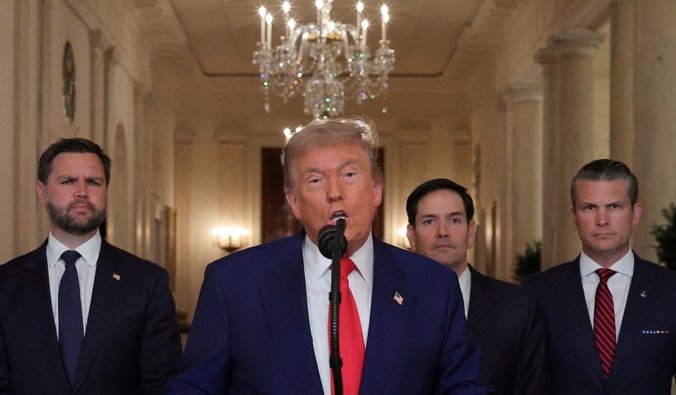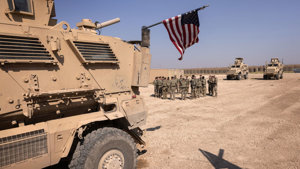
Trump Ends ‘12 Day War’ After Strikes on Iran Nuclear Sites
Trump orders strikes that cripple Iran’s nuclear program, secures Israel-Iran ceasefire after decades of hostilities.
Decades of Hostility Culminate in Precision Strikes
For over forty years, Iranian leaders have rallied the nation with the slogan “death to America,” a refrain that has echoed through political rallies, parliamentary sessions, and annual observances since the 1979 Islamic Revolution. Despite decades of negotiations and sanctions, Iran’s nuclear ambitions remained a persistent source of tension with the United States and its allies.
The animosity was rooted not just in rhetoric but in action, as successive Iranian leaders called for the end of U.S. influence in the Middle East. Supreme Leader Ali Khamenei and former presidents Mahmoud Ahmadinejad and Hassan Rouhani repeatedly invoked anti-American sentiment to justify resistance to Western policies. Even after the 2015 nuclear deal, known as the Joint Comprehensive Plan of Action (JCPOA), chants of “death to America” continued, and skepticism lingered over Iran’s true intentions.
Trump Orders Strikes, Forces Ceasefire
President Donald Trump, who withdrew the United States from the JCPOA in 2018, cited the deal’s weaknesses and Iran’s ongoing provocations. Tensions escalated in June as Israel launched preemptive strikes on Iranian targets over fears of imminent nuclear capability. As threats mounted, Iranian officials warned the U.S. and Israel with renewed fervor, but Trump made clear that American patience had run out.
On Saturday evening, Trump announced that the U.S. military had launched precision strikes on Iran’s key nuclear facilities—Fordow, Natanz, and Isfahan. “Our objective was the destruction of Iran's nuclear enrichment capacity, and a stop to the nuclear threat posed by the world's number one state sponsor of terror,” Trump said in an address to the nation. He declared the mission a “spectacular military success” and credited the campaign with forcing Iran and Israel into a ceasefire agreement, bringing an end to what he called the “12 Day War.”
In his remarks, Trump condemned decades of Iranian hostilities, recalling the thousands of casualties inflicted by Iran’s actions in the region. “For 40 years, Iran has been saying, ‘Death to America. Death to Israel.’ They have been killing our people, blowing off their arms, blowing off their legs with roadside bombs,” he said. “I decided a long time ago that I would not let this happen. It will not continue.”
Ceasefire Holds but Tensions Remain
The ceasefire, which Trump described as a triumph of stamina, courage, and intelligence, brought a dramatic pause to years of escalation. “This is a War that could have gone on for years, and destroyed the entire Middle East, but it didn’t, and never will! God bless Israel, God bless Iran, God bless the Middle East, God bless the United States of America, and GOD BLESS THE WORLD!” he wrote in a statement.
However, the path to lasting peace remains uncertain. On Tuesday, both Iran and Israel accused each other of violating the agreement, and Trump expressed disappointment with both sides. “I’m not happy with Israel… I’m not happy with Iran either, but I’m really unhappy if Israel is going out this morning,” he told reporters on his way to a NATO summit in The Hague.
Despite the lingering distrust, Trump’s decisive action against Iran’s nuclear infrastructure and the subsequent ceasefire represent a pivotal moment in Middle Eastern affairs. As tensions continue to simmer, the international community watches closely to see if this fragile peace can endure.






